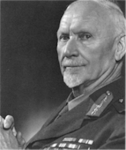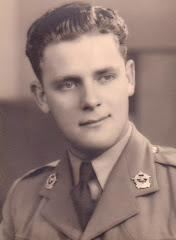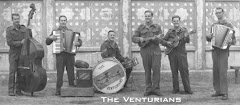Riveted by Music
I was about nineteen, newly married and very much in love, when I happened to pass by a music store one day, and was stopped in my tracks by the most glorious sound I had ever heard. I stood there on the sidewalk, leaning against the plate glass window for support, with my eyes closed; transfixed and impervious to impatient shoppers trying to pass by me, until the last strains of “I Only Have Eyes For You” had died away, and I could breathe freely again. Then I went in and pleaded for the entire 78 rpm record to be replayed … over and over again! Never had I heard anything so exquisite that it almost hurt, and it was a blessing that my husband, a talented musician himself, was soon hooked to the same extent that I was.
He had come home from the war in Malta and North Africa to join a commercial airline, but still played in the busy, very popular family orchestra on a regular basis. Sadly, only three weeks after we became engaged, his father died, very suddenly, and I was thrown in at the deep end to take his place at the piano. Needless to say, every "Freddy Gardner" (as we referred to those melodies) was unfailingly included in our repertoire, and it was fortunate that the two of us, as well as the sax player, could play by ear, because, in any case, it was not possible to buy the sheet music in Johannesburg at the time.
So we played on, rejoicing in the remote possibility that no other band knew “I’m in the Mood for Love” or “Valse Vanité” as yet, and blissfully unaware that we could very likely have been infringing on copyrights. We reveled in the almost deafening applause at the end of each set; at the same time yearning to sound more like Peter Yorke’s orchestra, the shining star of which was Freddy Gardner — of course! When, in time, we were able to splurge on our first record player, we would occasionally add one or two of our favourite classical recordings to our collection, but no matter what else we bought, whatever “Gardner” was available topped the list. My daughter, a toddler then, and now a grandmother, vividly recalls the unmistakable sound of that saxophone.
An Incredible Improviser
Gardner — said to have been comparable to Rudy Powell, Benny Carter, Alix Combelle, Russell Procope, Ken Mackintosh, or Willie Smith — was the most incredible improviser. He had performed regularly over the radio in Britain, but, living thousands of miles away as we did, it was not until after he began to play and record with a larger ensemble that included in its ranks trombonist and future bandleader, Ted Heath, that I finally heard him on that memorable day, and almost swooned with ecstasy. How he could make the melody soar to thrilling heights, seeming to turn somersaults in the air, before it swooped down again to take one’s breath away!
A World Class Jazz Instrumentalist
Born in London in 1910, he was a skilled clarinetist, alto, tenor, and baritone saxophonist, and one of England's most popular saxophone players during the 1930s and '40s. It was after serving in the second World War that he was featured as a soloist with Peter Yorke and His Concert Orchestra. He, Freddy Gardner, was a world class jazz instrumentalist, a virtuoso not only on clarinet and alto sax, but also on every instrument that comprised the saxophone family; however I best remember the sound of his "golden tone saxophone" when it was backed by “lush orchestral accompaniment.” His renditions of “Body and Soul” and “Smoke Gets in Your Eyes” have never been surpassed.
Correspondence Initiated
Although the staff of the music store must all have come to know me by sight, and must certainly have connected my visits with the inevitable Freddy Gardner recording that would be put onto the turntable to oblige me, it came as a shock to learn from the manager — to whom I had not spoken at any length before — that Freddy Gardner was no longer alive. That he had, in fact died a year or two before I had ever heard of him. Needless to say, I was devastated! It was as if I had just suffered a personal loss!
That night, as I held a record in my hands, mourning, I studied the information on the label more carefully than I had ever done before, and all of a sudden the name of the recording company (I seem to recall that it was Parlophone) became a very important link. I did not go to bed until I had written a letter, addressed the envelope to a place on Wardour Street in London, and extracted a solemn promise from my husband that he would post it on his way to work next morning.
The waiting was intolerable. It must be remembered that there was no “airmail” in those days, and the very word “email” was still to be invented. Every Thursday at 4pm a Union-Castle Royal Mail Ship would leave Southampton bound for Cape Town and, at the same time, a Union-Castle Royal Mail Ship would be leaving Cape Town bound for Southampton. I realized that I had at least a month of suspense ahead of me, but the response, when it did arrive, proved to have been worth the wait.
How nice people were in those days! And how obliging! I was advised that, if anyone could provide the answers to the questions I had posed, it was a popular musician by the name of Ted Heath. The writer, trusting that I would not object, had, in order not to waste time while further correspondence was exchanged, taken the liberty of passing my letter directly on to Mr. Heath, from whom I should expect a reply very shortly!
Precious Letters
Again the response was swift, charming, and personal. A far cry from what any of today's agents, besieged by and accustomed to hysterical fans, would have sent me. He gave me as much information as he was able to provide, first explaining that he considered Freddy’s mother better equipped, advised that he had written to her, and that he had provided her address in case I wanted to contact her personally.
Today her letters are even more precious to me than they were then. Such information as I have provided above can probably be downloaded from the Internet now, but the personal things about his life I gained only from her. It was she who told me that he had a Selmer sax and clarinet, always played the Mk V 'balanced action' sax he had obtained in about 1935, throughout his career, and how he was able to play a sax an octave above the register for which it had been designed. He could play the instrument in such a way that that even the manufacturer could not determine - just by listening - whether it was a tenor or an alto. It was probably this amazing ability, what I have described as “soaring to thrilling heights," that caused him to die of a stroke before he was 50.
She told me that his wife was not very well at the time (understandably so), that finances were a bit “tight” and that it was his little son who had called the ambulance when his father collapsed. In every letter I wrote back to her, I expressed a longing to visit England and to meet her her family in person.
With the most treasured letter of all came a signed photo of her son, carefully protected by stiff cardboard, and an explanation that she had others, but that the one she was enclosing was very special. It was the last he had ever signed, and he had done so on the afternoon before his death.
A Personal Meeting
Then, out of the blue, my husband came home one day to tell me that he was shortly being sent to England on airline business. How the letters then began to go back and forth! What should I send her? Nylons were still unobtainable, and many commodities were still rationed, she wrote back. Kathleen would be happy to receive the same as she did. And what was on the boys’ wish list? Tiny Zulu assegais and spears. “The kind that tourists brought back as souvenirs.”
A Memorable Experience
Tom’s visit to the Gardners was memorable for more than one reason. We did not yet have television in South Africa, and it came as a surprise to learn that some people in Britain actually had a special TV room. How amazing it was that his first experience of television was in theirs, during a visit to the Gardners, Freddy’s mother and children; and together they were blessed to share the Freddy Gardner Special which aired that day!
Good News and an Indescribable Disappointment
Excited because it might stimulate sales - and thus more royalties - I was thrilled to be able to inform Mrs. Gardner, in due course, that a music store with which I was well acquainted was now using “Valse Vanité” as the signature tune for its advertisement on a popular commercial radio station. This, in turn, triggered an irresistible impulse, precipitating a truly ambitious project on my part. I would write a program about Freddy for the South African Broadcasting Corporation, and somehow arrange for it to be aired simultaneously by the BBC so that his wife, mother, and children could hear it!
I burned the candles at both ends as I tapped away at the kitchen table on my little Olivetti portable, and once the script had been okayed by the SABC, I carefully wrapped the precious photograph, and caught a bus to the other side of the city to hand-deliver it to the relevant department, so that it could be featured in the advance publicity.
The arrangements were made for the hook-up in Britain, and then my family and I waited with bated breath for the broadcast to begin, anticipating how thrilling all this would be for the Gardners. But guess what? The BBC omitted to advise Mrs. Gardner of the scheduled time, and when the precious photo was returned to me ten days later, it came by post … folded to fit into an envelope! The years (more than 50 of them) have done nothing to smooth out the the fold or assuage my disappointment!
Thursday, February 18, 2010
Subscribe to:
Post Comments (Atom)









.png)







.jpg)









1 comment:
What a lovely story, Marie. I can't understand why someone would fold a photo, but at least you do have it!
All the best, Tess
Post a Comment